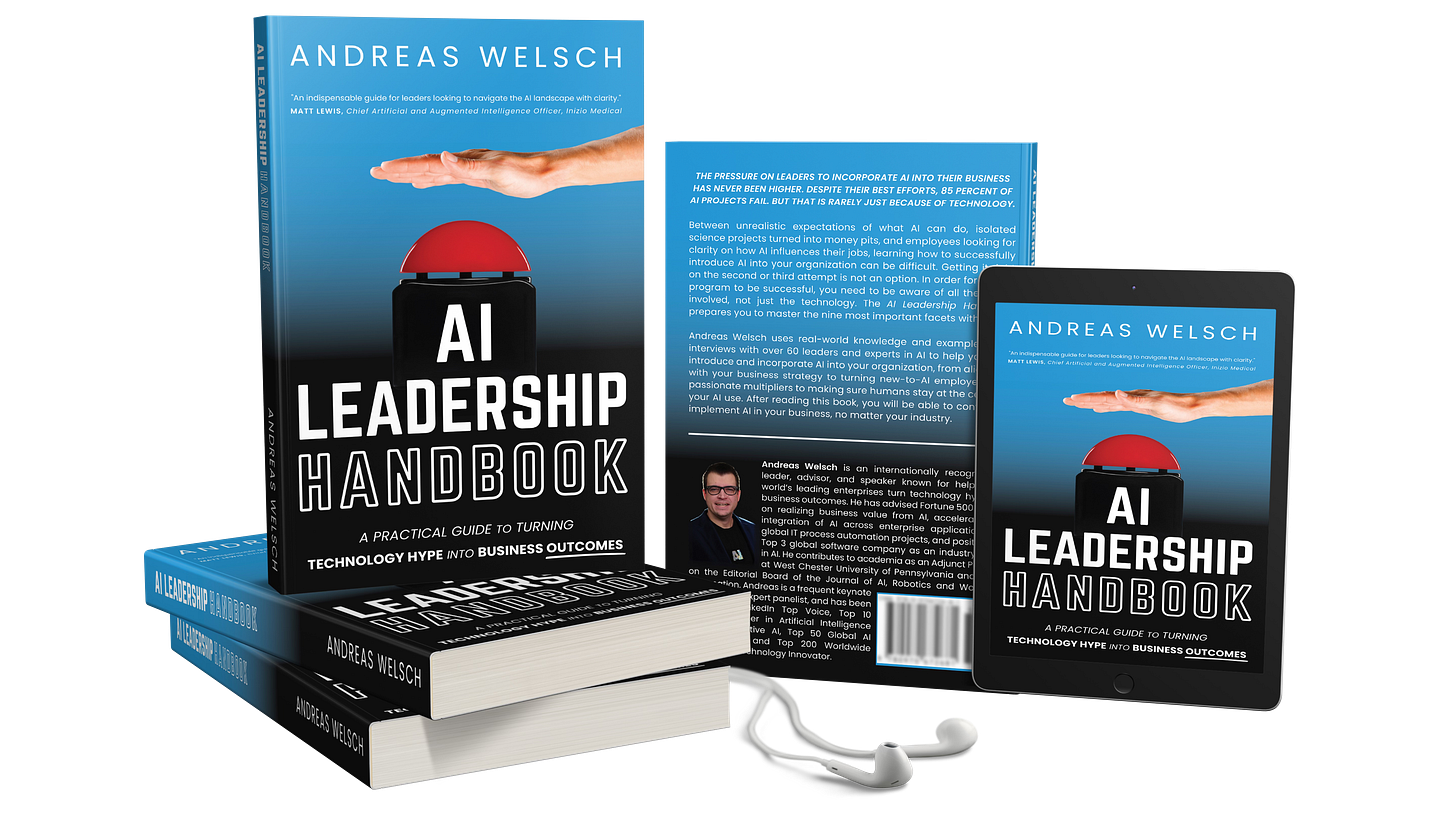Starting Your Journey With AI Agents: Tips From The Field
How Leaders Can Embrace Agentic AI and Make it Useful for Their Business
It’s 2025 and AI agents are here. But are they truly useful?—And if so, for whom? The key lies in understanding how to navigate internal processes, embracing experimentation with new tools, and identifying clear value propositions to automate and streamline operations. A few weeks ago, Eduardo Ordax (Generative AI Lead at AWS) joined me on “What’s the BUZZ?” to share more. Here's what we talked about...
Understanding Internal Processes to Begin Your AI Journey
Businesses often realize that the most ripe opportunities for deploying AI agents lie within internal processes. This is the first step on the journey. By automating workflows that are currently manual and time-consuming, organizations can not only enhance efficiency but also free up human resources for more strategic activities. Imagine an agent handling the tedious task of travel booking, or generating reports that require multiple data sources.
The key is to start small. Focus on processes that are well-documented and understood already. Leverage technology to build momentum, rather than attempting to build an overly complex autonomous system right from the get-go. This transitional approach helps teams get used to automation at a manageable pace while also demonstrating immediate value. In doing so, you equip your team with a framework they can expand upon as they grow more comfortable and proficient with automation.
Listen to the Audiobook: AI Leadership Handbook
Andreas Welsch uses real-world knowledge and examples from interviews with over 60 leaders and experts in AI to help you both introduce and incorporate AI into your organization, from aligning it with your business strategy to turning new-to-AI employees into passionate multipliers to making sure humans stay at the center of your AI use. After listening to this audiobook, you will be able to confidently implement AI in your business, no matter your industry.
Embracing Experimentation by Starting with the Basics
It's vital to embrace a culture of experimentation when implementing AI agents. These technologies are new, yet they should not be perceived as off-the-shelf solutions that can solve every conceivable problem. Start by leveraging existing tools designed to accelerate the automation process. Companies can use platforms that facilitate building and integrating AI agents with minimal technical expertise.
» You can say, I want to build these specific agents for customer support. You are going to have access to all these different systems. You can give them some instructions and build different workflows. The entry barrier is going to be very low. «
— Eduardo Ordax
Start your journey by using systems that enable rapid testing. This may include platforms that provide user-friendly interfaces or even pre-built templates tailored for specific tasks like customer service or internal requests. Fostering an environment where teams can freely experiment will enhance learning and innovation. The marketplace is making these innovations increasingly viable, so don’t hesitate to use these resources to make progress and quick wins.
Identifying Value Where AI Agents Make a Difference
Effective implementation recognizes where value exists within your operations. Analyze your current processes to identify bottlenecks or pitfalls that stand in the way of efficiency. Are your employees spending lots of time on administrative tasks? Do you have customer inquiries churning through the system without timely responses? AI agents can resolve these issues, providing not just answers but actionable solutions.
By understanding and documenting the processes that leave your organization vulnerable or strained, you position yourself to capture significant improvements through automation. Strategically assigning agents to these areas can capture gains in productivity, speed up service delivery, and ultimately save costs, ensuring you’re getting the most use out of your AI investment.
Summary
The journey toward implementing AI agents in your organization involves three critical steps: first, understanding and automating internal processes to free employees from routine tasks; second, creating a culture of experimentation that maximizes the use of existing tools; and third, strategically identifying areas in your operations where AI agents can drive real value.
As you move forward, consider documenting your findings and experimenting with automation strategies. Start with manageable processes, use existing solutions, and focus on areas ripe for enhancement. Equipped with these insights, you'll be better positioned to lead your organization through the transformative landscape of AI.
Are you exploring AI agents in your business, yet?
Listen to this episode on the podcast: Apple Podcasts | Other platforms
Explore related articles
Become an AI Leader
Join my bi-weekly live stream and podcast for leaders and hands-on practitioners. Each episode features a different guest who shares their AI journey and actionable insights. Learn from your peers how you can lead artificial intelligence, generative AI, agentic AI, and automation in business with confidence.
Join us live
March 18 - Tomas Gogar (CEO of Rossum) will share the three steps towards enterprise-grade Agentic AI.
March 25 (members-only) - Camila Manera (Chief AI Officer) will share how to bridge the gap between AI and the business.
April 01 (members-only) - Peter Gostev (Head of AI at Moonpig) will talk about how not to get fooled by Agentic AI claims.
April 08 (members-only) - Maxim Ioffe (Head of Automation at WESCO Distribution) will discuss setting AI governance programs between IT and the business.
Watch the latest episodes or listen to the podcast
Follow me on LinkedIn for daily posts about how you can lead AI in business with confidence. Activate notifications (🔔) and never miss an update.
Together, let’s turn hype into outcome. 👍🏻
—Andreas







